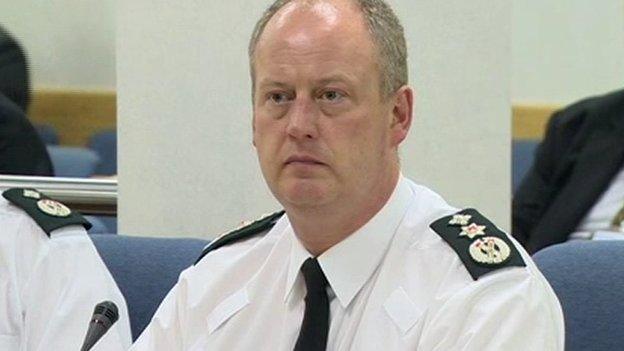Westminster 'must provide' funding for PSNI recruitment
- Published
Ninety-six per cent of the survey's respondents said morale within the police service was low
The Democratic Unionist Party (DUP) has said the government must provide funding to recruit an additional 800 police officers.
North Antrim MP Ian Paisley said the money would enable the Police Service of Northern Ireland (PSNI) to do its job, and counter record levels of low morale.
The Police Federation has said urgent action must be taken after thousands of rank-and-file police officers said morale was at an all time low.
Federation chairman Mark Lindsay described the findings in an independent survey as bleak, but not surprising.
Mr Paisley said the government was obliged to provide the extra funding as part of its endorsement of the Patten reforms of policing, which led to the creation of the PSNI.
Significant
"We need to address the root cause of this morale problem," he said.
"The Patten report said there had to be 7,500 officers policing a state the size of Northern Ireland.
"We are almost a thousand beneath that.
"We need to start recruiting an additional 800 offices to make up the gap, to ease the burden, spread the load, and allow officers to do the job they really want to do."
The survey was conducted by an independent team of academics who also carried out similar work for the Police Federation of England and Wales.
An online questionnaire was completed by 2,527 PSNI officers, 37% of the total number.
Some 96% of respondents described morale within the police service as low with reasons including budget cuts, pensions, and internal change and restructuring.
Mr Paisley described the survey results as worrying and added that the party's eight Westminster MPs would push for the funding.
"If this level of morale continues, police officers will not be able to do their jobs and we will see mass haemorrhaging of officers leaving the service," he said.
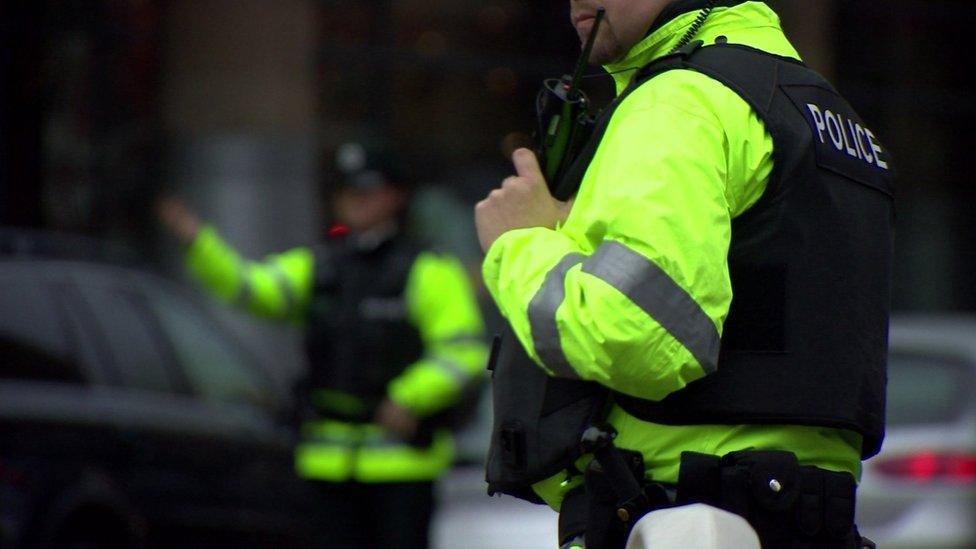
The PSNI said it would work to address the concerns raised by the survey results
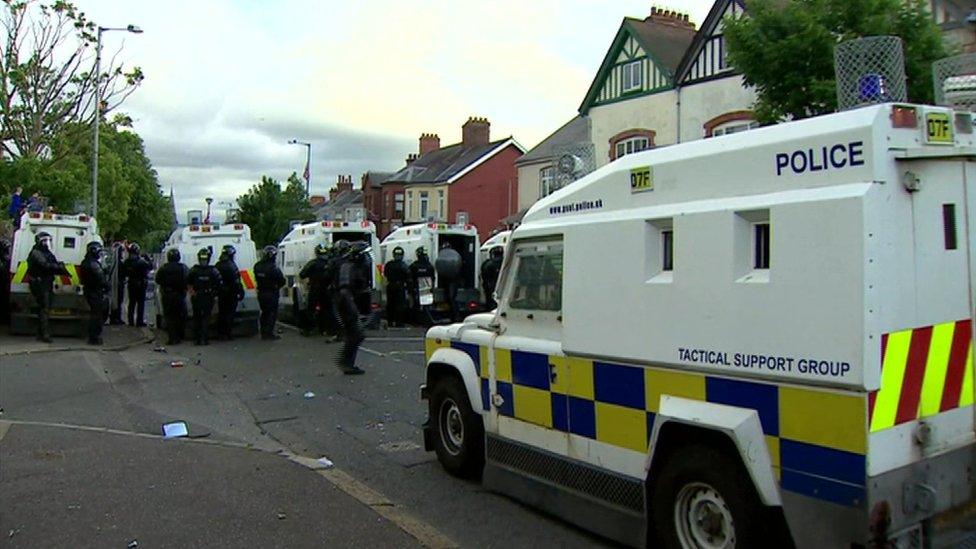
Mark Lindsay said the Police Federation had warned that morale was low for "some time"
Mr Lindsay said the survey results were highly significant.
"This is the first time that officers, from constable to chief inspector, have been surveyed for their views, and also the first time that the issue of morale within the service has been quantified," he said.
"The findings are not a surprise. We have been saying this for some time.
"Up until now, all we had to go on was anecdotal evidence.
"Now, we have robust, cold hard facts which show just how low morale is within the PSNI."
Unprecedented
The PSNI said it was aware that morale was a significant issue for policing, especially during "challenging financial times".
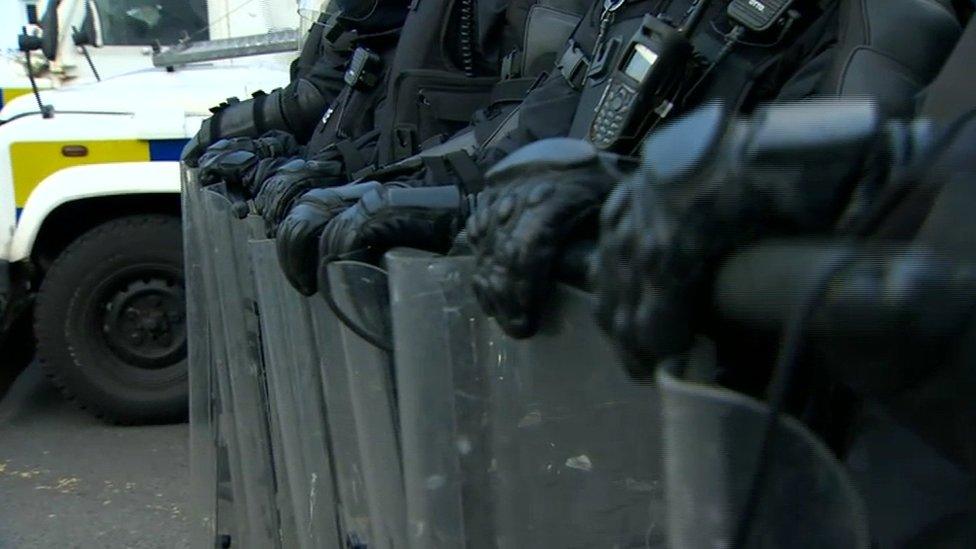
The PSNI is going through "unprecedented change", Ass Ch Con Chris Noble says
Ass Ch Con Chris Noble said police would work closely with the Police Federation on a day-to-day basis to address its concerns and those of its members.
"The majority of officer issues raised are about changes to pay, pensions and conditions that have been implemented across UK policing over the last number of years," he said.
"Our organisation is going through a period of unprecedented change.
"We know the personal and professional impacts of change and we are committed to doing all we reasonably can to help colleagues adapt to and adopt new ways of working."
Urgent matter
The Northern Ireland Policing Board (NIPB), which monitors the work of the PSNI, will discuss the survey's findings when it meets the chief constable next week.
In a statement, a NIPB spokesperson said the PSNI has "been through a significant programme of policing reform and more recently further organisational changes have been necessary to achieve required reductions to policing budgets".
"The fiscal picture is unlikely to change and, as such, it is important that all resources are used efficiently by the chief constable. The PSNI workforce strategy must also provide the necessary support to officers and staff in their work," it added.
Policing Board member and Ulster Unionist MLA Ross Hussey told the BBC's Good Morning Ulster programme: "This is a real shock to the system and it's something that must be dealt with as a matter of urgency."
Mr Hussey added: "If we have a survey that indicates that 96% have low morale, I think that's something to take very, very seriously and it's something we must look at - how we fund our police service."
- Published27 May 2015
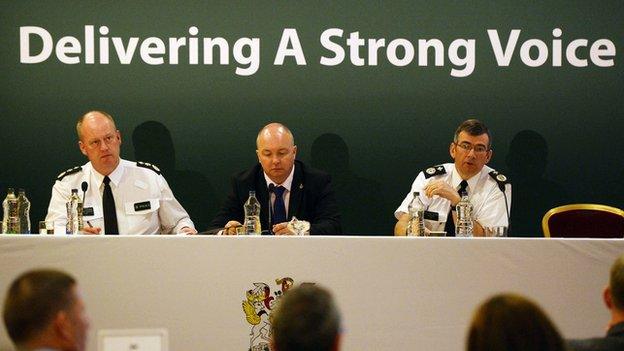
- Published2 October 2014
